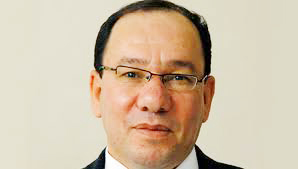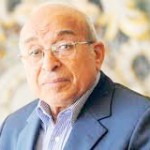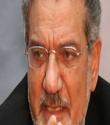Planned protests for 24 August occupy columnists alongside fears of the Muslim Brotherhood’s near monopoly on power and the exclusion of the revolutionary youth from organised politics. Are the organisers of planned protests divorced from the Egyptian street for calling for a second revolution or are the political parties distancing themselves from the movement the ones out of touch with the street? Columnists argue both ways.
24 August: The B-movie
Wael Qandil
Shorouk

Qandil views calls for mass protests on 24 August as delusional, further proof of the organisers’ divorce from the Egyptian street. Calling them ‘the second revolution of rage’ is akin to children in alleyways calling themselves by the names of their favourite football teams, or a corner store naming itself Mega Market; a sort of parodic comedy at best. At the end of the day, he says, the protests are nothing more than political frolics, with all the impact and danger of waves in a water park.
He sees this ploy as part of an ongoing process to erase history. These same people were the soldiers of General Shafiq, before he escaped to Dubai; some were the cheerleaders of the Supreme Council of the Armed Forces (SCAF) generals who have now been relegated to the archives of modern Egyptian history. When they found themselves out in the cold, they decided to “play revolution.”
The Muslim Brotherhood is playing into this joke he says, “inflating this balloon till bursting point,” in order to convey that this is the size of its opposition and that it is composed of leftover Shafiq and SCAF supporters. What is certain, Qandil claims, is that the President and his organisation are well aware that the real opposition is not yet fully formed; and it is wrong of anybody to think that blowing more air into this vacuous caricature of an opposition will succeed in delaying or drowning out the onset of genuine and much-needed opposition.
When victory is more dangerous than defeat
Fahmy Howeidy
Shorouk

Howeidy explores what he sees as the unenviable position of the Muslim Brotherhood’s monopoly on power, in light of the recent decisions that effectively bring to an end the political role of SCAF. He begins by pointing out the significant differences between the military’s removal from political power in Egypt and Turkey: primarily that, in the latter case, the military had come to the fore with a good measure of legitimacy, after saving Turkey from complete collapse in the wake of a crushing defeat in the First World War.
The Muslim Brotherhood’s monopoly on power is a dangerous position for them to be in, according to Howeidy. Having always been the subverted opposition, they are now expected to work through the state apparatus, something of which they have no experience. Their history of subjugation made them focus on organisation and spreading the call, limiting their capacities for thought and creativity, which they now require in order to open up to the other and lead the nation. Howeidy sees Morsy’s platform as both lacking in creative solutions and in placing social justice sufficiently at the forefront. He fears that this means that the rich and able, rather than the poor and powerless, will benefit from it the most.
Howeidy expresses a personal wish that the Muslim Brotherhood had confined themselves to legislative powers, leaving the executive for some time, until people’s fears of the Brotherhood had been allayed, and both society and the political class were prepared to receive them. The responsibility now lies on both sides, though more on the Brotherhood, to come to agreements, something they have thus far failed to do. He stresses that the country will not recover nor democracy take its course until other political forces gather strength: forces that can compete and negotiate with the Brotherhood, that can hold them to account and present themselves as an alternative. Until then, he states, it is as though the regime is standing on a single leg.
The position of the Brotherhood as the sole power is a dangerous one, Howeidy concludes, as it leaves them alone in the firing line.
A right to revolution
Mohammed Salmawy
Al-Masry Al-Youm

Mohammed Salmawy sees the rush by political parties to distance themselves from the planned 24 August protests as yet another sign of their being out of step with the Egyptian street. This was expected of the old parties formed during the Mubarak era, but the fact that some new parties were following the old in denouncing people’s legitimate right to protest the oppressive practices of the new regime undermines their credibility, showing them in an unfortunate light.
Surveying the reasons people gave for opposing the protests, that they are against violence and opposed to the idea of bringing down an elected president by any means except through the ballot box, Salmawy finds they smack of falseness. He states that the calls for the protests were non-violent, as is the nature of the Egyptian people, as evidenced by the peaceful and civilised way they conducted their 25 January revolution.
It is the Muslim Brotherhood, he claims, that brought violence into political life since their founding in 1928: first with political assassinations, then through the terrorist groups that were “born out of the womb of the Brotherhood.” As for the notion that a regime can only be unseated through elections, history is filled with examples to disprove this, the most recent being the removal of Mubarak. If bringing down the current regime is unlawful, Salmawy asks, does that mean that bringing down the Mubarak regime was also unlawful?
The right to revolt is a constitutional right that is expressed explicitly in some constitutions of democratic nations. Salmawy gives the example of the constitution of Germany, which mentions “the lawful right of people to revolt” against a regime whose practices it is unhappy with. He ends by saying that not only is this newfangled “democratic regime” out of touch with the street, it is on the wrong end of democratic legitimacy, and that democratic legitimacy will be on the side of those who will come out on 24 August.
Stupidity is a wonderful thing
Stupidity is a wonderful thing
Nawara Negm
Tahrir News
Negm starts her column saying she has not seen anybody mobilising so strongly in favor of their enemies since Mubarak, in reference to the Muslim Brotherhood’s response to the calls for protest on 24 August. If the Brotherhood, Negm says, had not acted in the usual way, with their characteristic traits of cowardice and arrogance, the whole matter would have ended up being just a large demonstration, filtering into a weak sit-in that would have dispersed like all others before it. Rather than spreading fear and panic, President Morsy and his Brotherhood might have welcomed freedom of thought and expression, defended the right to protest, and promised to listen to and consider the demonstrators’ demands.
Morsy might have demonstrated that he understood the anxiety and marginalisation felt by the Coptic Christian population by acting to calm their fears through simple gestures, perhaps by congratulating them on the start of their fasting season and by paying a visit to the Cathedral instead of giving endless sermons at mosques addressed to “the nation of Islam.”
As for the threats issued against people who go out on 24 August, the Egyptian people, Negm asserts, do not respond to threats: this should be clear from the example of the late Omar Suleiman. There is no reason, she adds, for the Muslim Brotherhood’s terror: Mubarak is gone and they are no longer oppressed, in fact they hold all imaginable powers, and so they need to stop playing the victim.
When Tawfik Okasha and Abu Hamed called for the protests, the calls lost their legitimacy. However, the Brotherhood’s behaviour, in particular the recent slate of alleged fatwas making it permissible to spill the blood of the protestors, have garnered a lot of sympathy and support for the demonstrations. Stupidity, Negm states, is a wonderful thing.
Where are the youth in the revolutionary republic?
Ali Al-Selmy
Al-Masry Al-Youm

Ali Al-Selmy discusses the exclusion of young people from the political scene. Those who ignited the revolution, and paid the heaviest price for it in blood, have been sidelined in the process of rebuilding the nation on democratic grounds and creating a new social and political framework.
Al-Selmy holds all political forces equally responsible for this. He pinpoints the beginning of this process of marginalisation as the amendments made by SCAF to Law 201, greatly raising the requirements for the formation of political parties. This effectively put them beyond the reach of young people, confining the creation of parties to Islamists, former ruling party members, and businessmen, with their significant organisational and financial resources.
Selmy notes the shift in the relationship between the revolutionary youth and SCAF. In May 2011 the council invited over 1000 members of youth coalitions to the discussion table, but the dialogue did not continue beyond that. The relationship became mutually suspicious, and SCAF generals began to hurl accusations of vandalism and destructiveness at protestors, including General Roueiny’s famous remarks against the April 6 Youth Movement.
Despite repeated promises, young people have also been excluded from positions in both the Ganzoury government and the current cabinet. The only thing that remains for them to do, concludes Selmy, is to work hard and unify their efforts in forming a party that represents the demands of the revolution, and to converse and coordinate with all the parties that believe in a civil state and in the inevitable onset of democracy.
